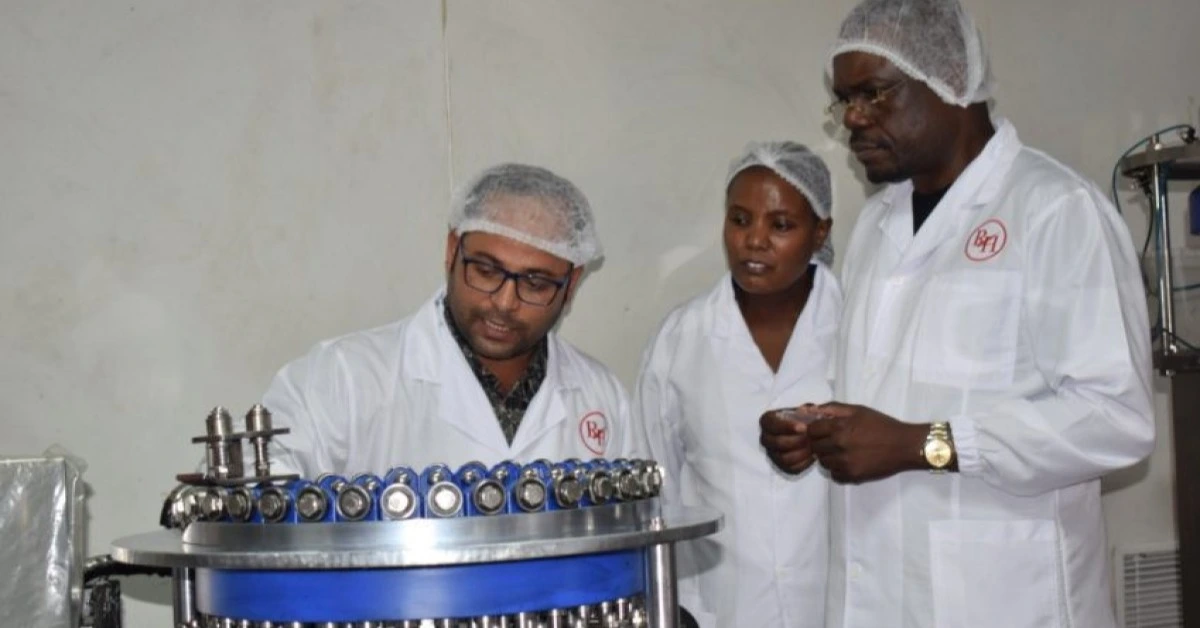
EGYPT – African countries are taking bold steps to expand local pharmaceutical and vaccine manufacturing, reducing reliance on imports and strengthening health security.
Development finance institutions (DFIs) are driving this shift by investing in sustainable production ecosystems.
During the 2nd Vaccine and Health Products Manufacturing Forum in Cairo (February 4-6, 2025), key stakeholders, including Africa CDC, Gavi, and the Regionalized Vaccine Manufacturing Collaborative (RVMC), discussed funding strategies to accelerate local production.
Egypt’s Unified Procurement Authority (UPA) hosted the event, showcasing the country’s progress as a regional leader in health manufacturing.
Major investments in local production
Leading DFIs such as Afreximbank, the African Development Bank, the European Investment Bank (EIB), the World Bank, the International Finance Corporation (IFC), and the French Development Agency outlined new and ongoing investments in Africa’s pharmaceutical sector.
Afreximbank reported progress in rolling out its US $2 billion healthcare investment facility, while the IFC and EIB introduced new financing programs to support health product manufacturing.
These efforts build on the 2023 Marrakesh forum, which identified 25 vaccine manufacturing initiatives across Africa, with 10 already operational.
The goal is to establish a sustainable manufacturing ecosystem, improve pandemic preparedness, and ensure Africa is not left behind during future health crises.
Egypt leading the way in health manufacturing
Egypt has emerged as one of Africa’s most advanced pharmaceutical producers, offering a blueprint for success.
The country’s progress aligns with the African Union’s target to produce 60% of vaccines locally by 2040. However, procurement challenges persist.
Dr. Aly al-Ghamrawy, chairman of the Egyptian Drug Authority, emphasized the dangers of external dependence:
“COVID-19 is a stark reminder of how Africa was pushed to the back of the queue for life-saving drugs. Reliance on external suppliers leaves us vulnerable in times of crisis.”
In December 2024, the World Health Organization (WHO) recognized Egypt as the first African country to achieve Maturity Level 3 for medicines and vaccines, signaling a well-regulated pharmaceutical sector.
This milestone coincided with Egypt producing its first locally manufactured insulin.
Challenges and future steps
Despite these advancements, Africa still faces obstacles, including regulatory fragmentation, limited technology access, workforce shortages, and inadequate funding guarantees.
Experts highlighted the need for industry-academia collaboration to train talent in science, technology, engineering, and mathematics (STEM).
New initiatives are fueling momentum. In June 2024, Gavi launched the African Vaccine Manufacturing Accelerator (AVMA), securing US $1.2 billion to expand vaccine production.
Afreximbank also pledged US $2 billion under the Africa Health Security Investment Plan. Additionally, the African Pooled Procurement Mechanism was introduced to ensure consistent demand for locally produced health products.
The African Medicines Agency (AMA) was highlighted as a key player in streamlining regulatory approvals and ensuring quality standards.
The African Continental Free Trade Area (AfCFTA) was also recognized for its role in boosting regional trade and expanding market access.
Africa CDC Director General Dr. Jean Kaseya reinforced the continent’s commitment: “The agenda of local manufacturing is not an option; it’s a vision we are materializing.”
New partnerships were announced, including mRNA technology transfers between Afrigen and Biogeneric Pharma and collaborations involving Evapharma, Quantoom, and Unizima in vaccine development. These alliances mark significant progress toward reducing Africa’s dependence on imports.
The forum brought together representatives from 12 African countries, national regulators, regional economic communities, manufacturers, global partners, and civil society organizations.
As Africa works toward its 60% local vaccine production target by 2040, sustained investment, regulatory alignment, and strong partnerships will be essential.
XRP HEALTHCARE L.L.C | License Number: 2312867.01 | Dubai | © Copyright 2025 | All Rights Reserved